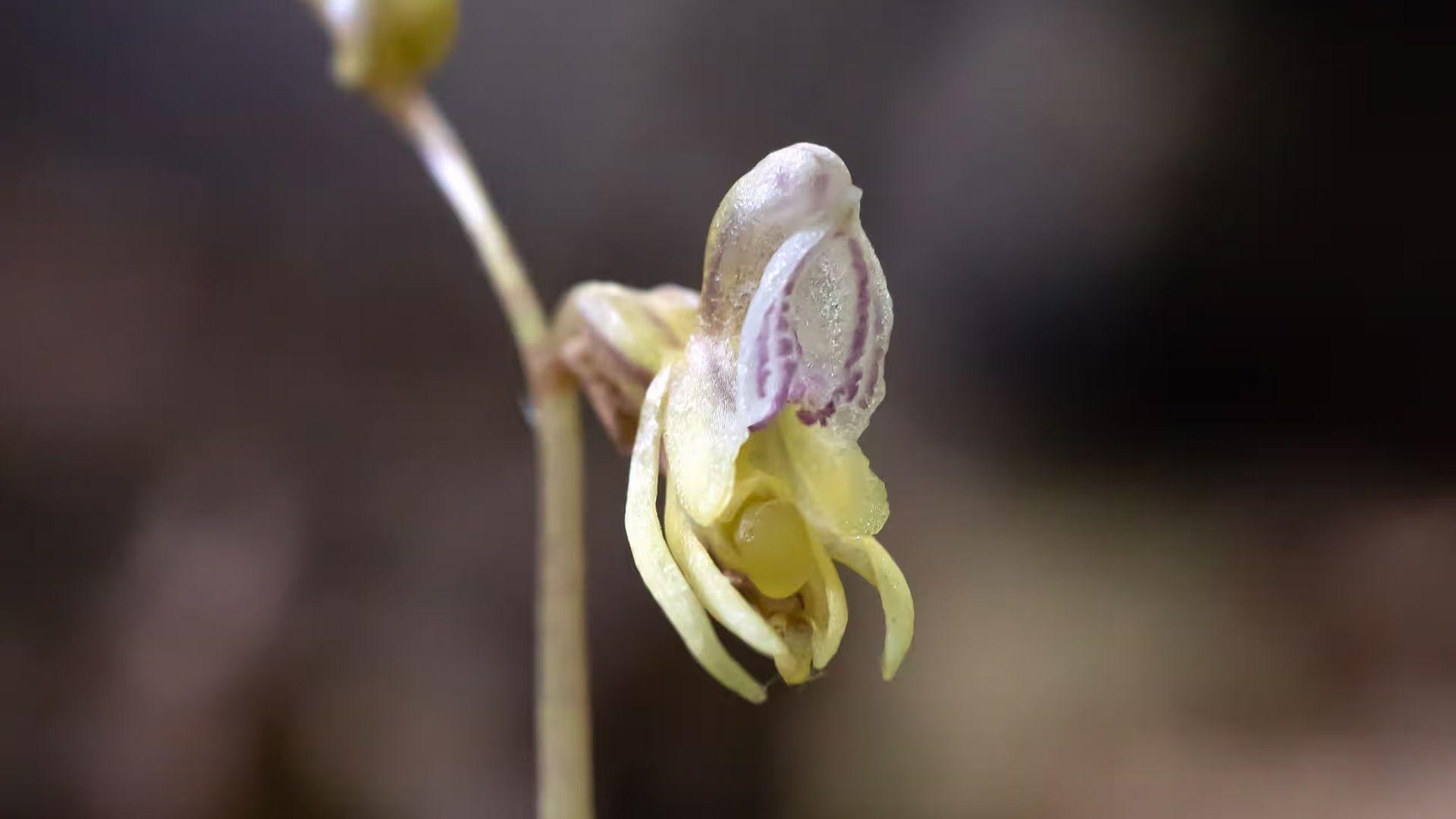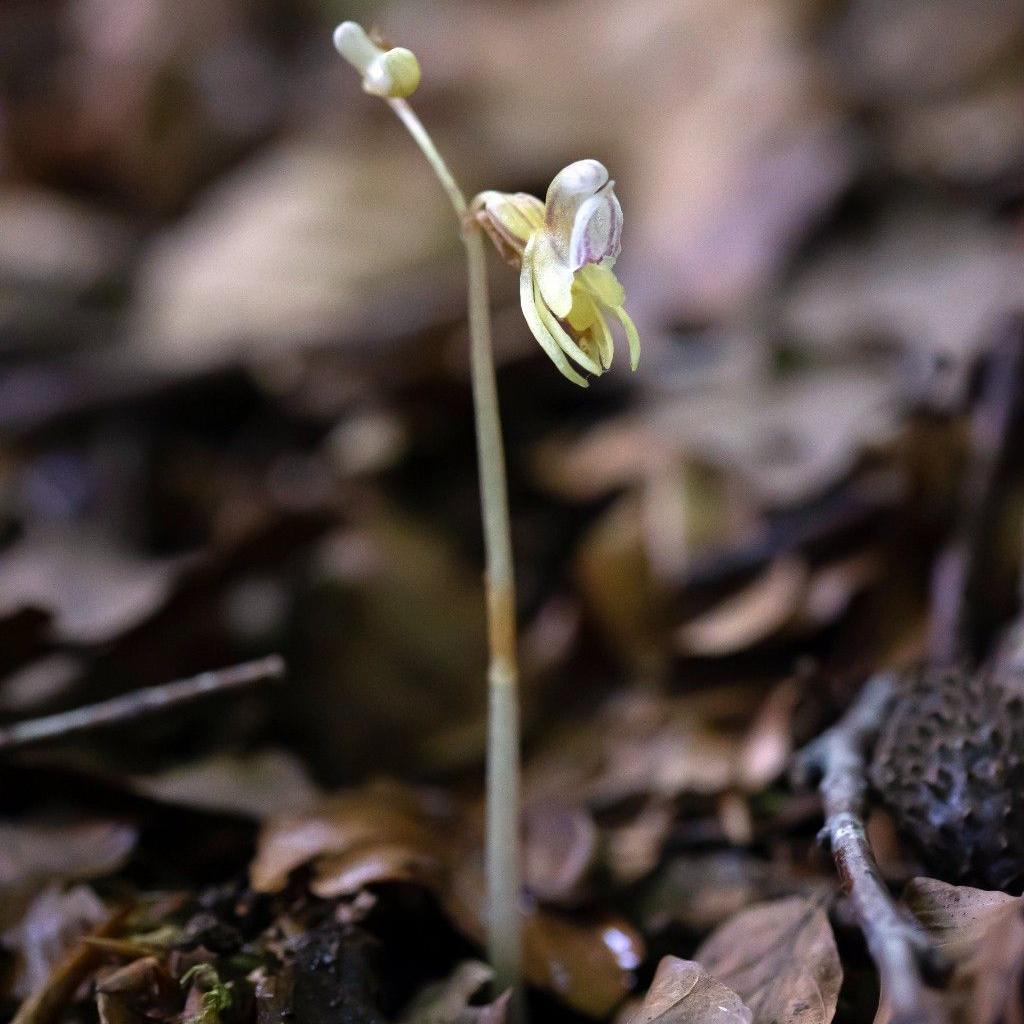Super rare ghost orchid rediscovered in UK

The rare ghost orchid gets its name from its white glow
- Published
One of Britain's rarest plants has been discovered in the wild for the first time since 2009.
The plant is a ghost orchid - a rare flower with no leaves or chlorophyll - the green pigment that absorbs sunlight so that plants can turn it into energy.
Unlike most plants, the orchid doesn't need sunlight, instead it feeds on nutrients from fungi underground.
Its location in England is being kept secret to protect the orchid from being squashed by flower tourists who want to look at it, or being stolen by a plant poacher.
A rare plant has reappeared after 100 years!
- Published29 November 2020
Why are scientists worried about this smelly plant?
- Published21 September 2023
Rare cactus flower blooms again!
- Published24 March 2023

Who found the rare ghost orchid?
The super rare plant was discovered earlier this month by Richard Bate, a dentist, orchid lover and member of the Botanical Society of Britain and Ireland (BSBI)
Richard had been trying to catch a glimpse of the secretive flower for more than 30 years.
First spotted in Britain in Herefordshire in 1854, the orchid likes to grow in deep dark woodlands.
Since then it has only been spotted a handful of times in170 years, and was declared extinct in the UK in 2009 after not being spotted for 22 years - until it appeared a week later!
This new sighting of the ghost orchid in Britain is the first since 2009.
Award-winning nature pictures: Whale sharks, birds, coral and wasps
- Published16 August 2024
Tree of the Year 2024: Which of these trees will you be rooting for?
- Published23 August 2024
The plan to 'regrow' the Sycamore Gap tree
- Published9 March 2024
“[The] ghost orchid has long been the holy grail for British botanists." said Prof Ian Denholm, one of BSBI’s two national expert referees on orchids.
"There was a brief flurry of records in the 1960s and 1970s, and I was lucky enough to see a single specimen in the mid-1980s. Since then, I reckon only six people have knowingly observed it in the wild in Britain. It is wonderful news that it has reappeared and let’s hope it does again.”
Speaking about finding the orchid, Mr Bate said: “Knowing that the ghost orchid is still here and hasn’t gone extinct in Britain fills me with hope for the future of this species.
This discovery reminds us that even in the darkest woods, there is always hope.” he said.
